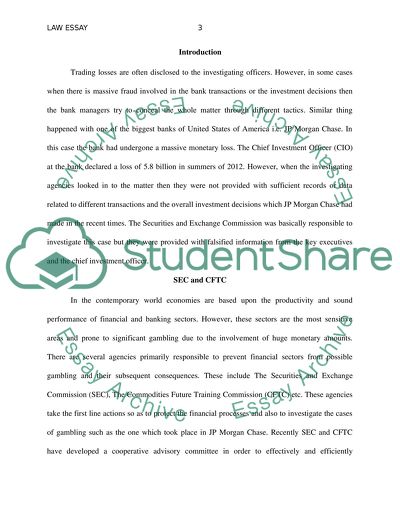Cite this document
(“JPMorgan Chase Essay Example | Topics and Well Written Essays - 1250 words - 3”, n.d.)
JPMorgan Chase Essay Example | Topics and Well Written Essays - 1250 words - 3. Retrieved from https://studentshare.org/law/1476564-jpmorgan-chase
JPMorgan Chase Essay Example | Topics and Well Written Essays - 1250 words - 3. Retrieved from https://studentshare.org/law/1476564-jpmorgan-chase
(JPMorgan Chase Essay Example | Topics and Well Written Essays - 1250 Words - 3)
JPMorgan Chase Essay Example | Topics and Well Written Essays - 1250 Words - 3. https://studentshare.org/law/1476564-jpmorgan-chase.
JPMorgan Chase Essay Example | Topics and Well Written Essays - 1250 Words - 3. https://studentshare.org/law/1476564-jpmorgan-chase.
“JPMorgan Chase Essay Example | Topics and Well Written Essays - 1250 Words - 3”, n.d. https://studentshare.org/law/1476564-jpmorgan-chase.


